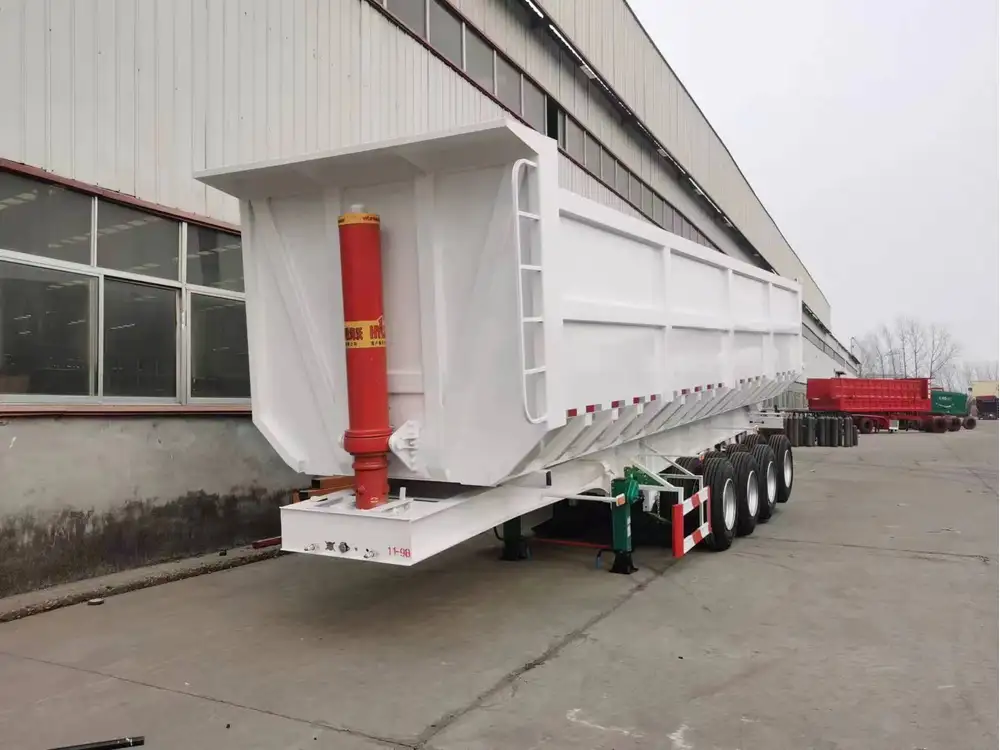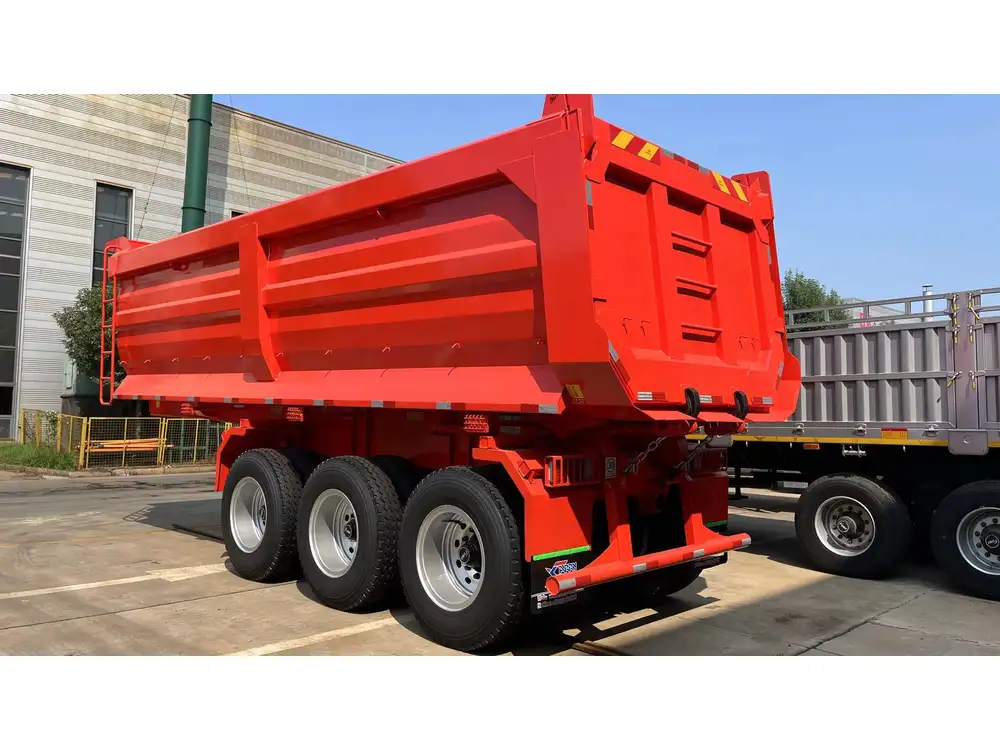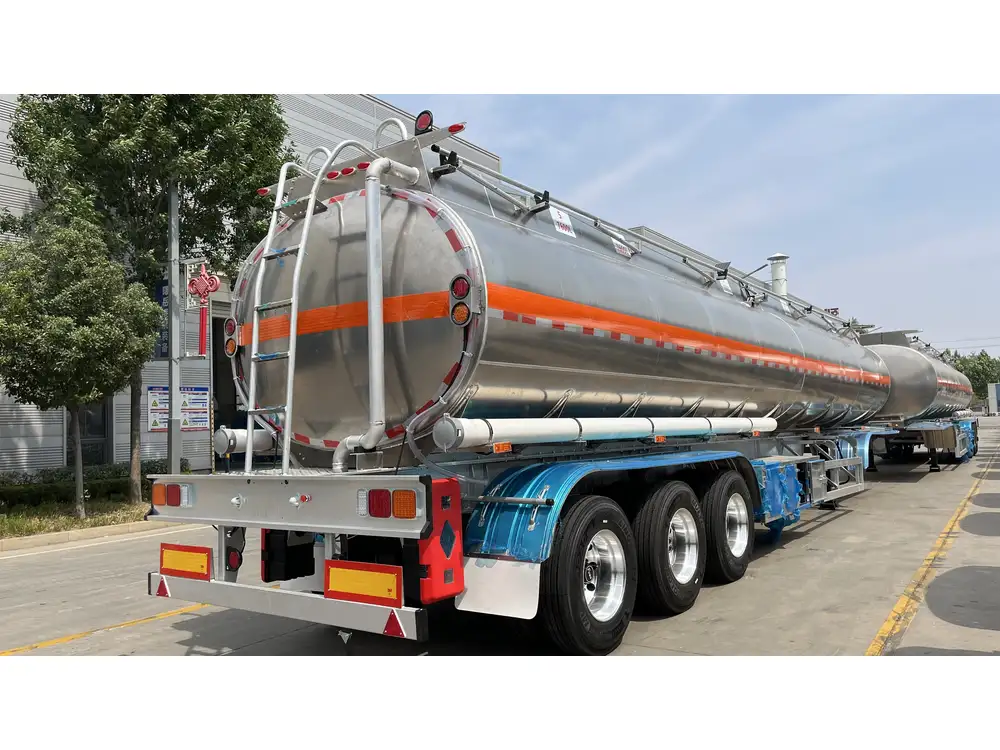When it comes to hauling equipment, the choice of trailer is critical. Many individuals and businesses are increasingly turning towards dump trailers for their versatility and robust design. This article explores the complexities of using dump trailers for hauling various types of equipment, addressing key concerns, while providing an in-depth look at their advantages and limitations.
Understanding Dump Trailers
What is a Dump Trailer?
Dump trailers are heavy-duty trailers equipped with a hydraulic lift mechanism that allows the bed to tilt for unloading bulk materials. They are commonly used in construction, landscaping, and other industrial applications. Their ability to carry substantial payloads while facilitating easy unloading makes them an attractive option for equipment transport.

Types of Equipment That Can Be Hauled
Dump trailers can accommodate a variety of equipment, ranging from small landscaping tools to larger construction implements. Here’s a breakdown:
| Equipment Type | Weight Range | Suitable for Dump Trailers |
|---|---|---|
| Small Tools | Up to 500 lbs | Yes |
| Lawn Mowers | 400 – 800 lbs | Yes |
| Skid Steers | 3,000 – 10,000 lbs | Yes (with limitations) |
| Mini Excavators | 3,000 – 12,000 lbs | Yes (with considerations) |
| Larger Construction Gear | 10,000 – 30,000 lbs | Yes (check specific limits) |
Key Benefits of Using a Dump Trailer for Equipment Hauling
1. Efficient Loading and Unloading
The ability to tilt the trailer bed allows for efficient unloading. Materials and equipment can be dumped out quickly, reducing time spent on site.

2. Versatility
Dump trailers are versatile; they can be used for transporting gravel, soil, and debris, as well as different kinds of equipment. This multipurpose functionality can save time and money in logistics.
3. Higher Weight Capacity
Many dump trailers offer impressive weight capacities, making them suitable for hauling heavier equipment that would be challenging for standard flatbed trailers.
4. Stabilization Features
Modern dump trailers come equipped with advanced stabilization systems, ensuring secure transport of equipment across varying terrains, enhancing safety.

5. Customization Options
Dump trailers can be customized with additional features such as toolboxes, ramps, and side extensions, maximizing their utility for specific hauling needs.
Limitations and Considerations When Hauling Equipment
1. Weight Limitations
Every dump trailer has a designated weight limit that should never be exceeded. Overloading can cause damage to the trailer and create safety hazards during transport.

2. Equipment Distribution
Proper distribution of weight within the trailer is crucial. Uneven loading can lead to balance issues and increase the risk of tipping during transit.
3. Compatibility with Equipment
Not all equipment is suitable for hauling in a dump trailer. Ensure that your equipment can be securely fastened and that the trailer’s dimensions accommodate the specific type of machinery.
4. Legal Restrictions
Different regions have regulations governing the height, weight, and dimensions of trailers. Always check local laws to ensure compliance when hauling.

5. Risk of Damage
While dumping is convenient, it can potentially cause damage to delicate equipment. Consider the unloading method to avoid costly repairs.
Best Practices for Hauling Equipment in a Dump Trailer
Safety First
Always Wear Protective Gear: Before operating the equipment, ensure you’re wearing the appropriate safety gear, including gloves and hard hats.
Secure Loads Properly: Use straps, chains, or binders to secure your equipment firmly to the bed of the trailer. This minimizes shifting during transportation.
Balance Loads: Distribute weight evenly across the trailer. A well-balanced load will help in maintaining control while driving.

Usage Tips
Load Ramps: If the equipment has wheels, consider using load ramps for safe onboarding and offboarding.
Avoid Overloading: Adhere strictly to the maximum weight limit. Checking the trailer’s compliance with the load is non-negotiable.
Regular Maintenance Checks: Conduct routine inspections and maintenance on your dump trailer to ensure it’s in optimal condition for hauling.
Preparing Your Equipment for Transport
To reduce the risk of damage during transit, follow these steps:
Clean Your Equipment: Remove all debris or dirt that might accumulate during use. This prevents unwanted rusting or damage.
Inspect for Damage: Check basements, wheels, and other critical components for any signs of damage before loading onto the trailer.
Mind Electronic Parts: For electrical equipment, check that all components are secured and that wiring is protected to avoid short circuits.
Case Studies: Successful Equipment Hauling

Case Study 1: Landscaping Company Hauling Skid Steers
A landscaping company utilized a dump trailer to haul skid steers and lawn care equipment between job sites. By employing a dedicated loading ramp and adhering to weight limits, they increased productivity and ensured safe transport. The ability to unload materials quickly allowed them to maximize efficiency during projects.
Case Study 2: Construction Firm Transporting Heavy Machinery
A local construction firm relied on a dump trailer to transport mini excavators. While going over state regulations for height and width, they ensured compliance by using trailering services that could accommodate their needs. Their focus on utilizing proper securing tools resulted in zero accidents during transit.
Frequently Asked Questions

1. Can you haul heavy equipment in a dump trailer?
Yes, but it’s crucial to adhere to the specific weight limits of your dump trailer to ensure safety and compliance.
2. What maintenance does a dump trailer require?
Regular inspections of tires, lights, hydraulic systems, and the trailer’s bed are necessary to ensure longevity and safety.
3. Are dump trailers suitable for off-road equipment transport?
Yes, dump trailers can be effective for off-road equipment, given they are designed with the correct weight distribution and have appropriate tires for terrain.

4. Are there specific types of dump trailers for hauling equipment?
Yes, some dump trailers are designed specifically with heavy-duty frames and suspension systems that better accommodate larger or heavier items.
Conclusion
Dump trailers are a versatile solution for transporting a wide range of equipment, including heavy machinery. They offer several advantages that make them a preferred choice for businesses in the construction and landscaping sectors. However, it is pivotal to approach the use of dump trailers with a clear understanding of their limitations and best practices for safe loading and transport.
By taking into consideration factors such as weight distribution, equipment compatibility, and local regulations, users can effectively utilize dump trailers to improve their logistics operations. With careful planning and execution, hauling equipment in a dump trailer can be not only feasible but also remarkably efficient.



